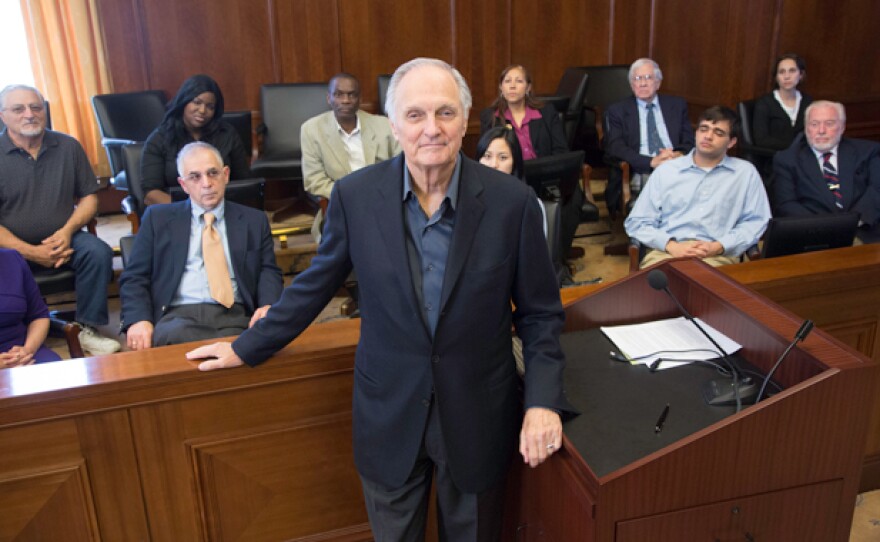As brain scanning techniques advance, their influence in criminal cases is becoming critically important. An innovative two-part series, BRAINS ON TRIAL WITH ALAN ALDA, explores how the growing ability to separate truth from lies, even decode people’s thoughts and memories, may radically affect how criminal trials are conducted in the future.
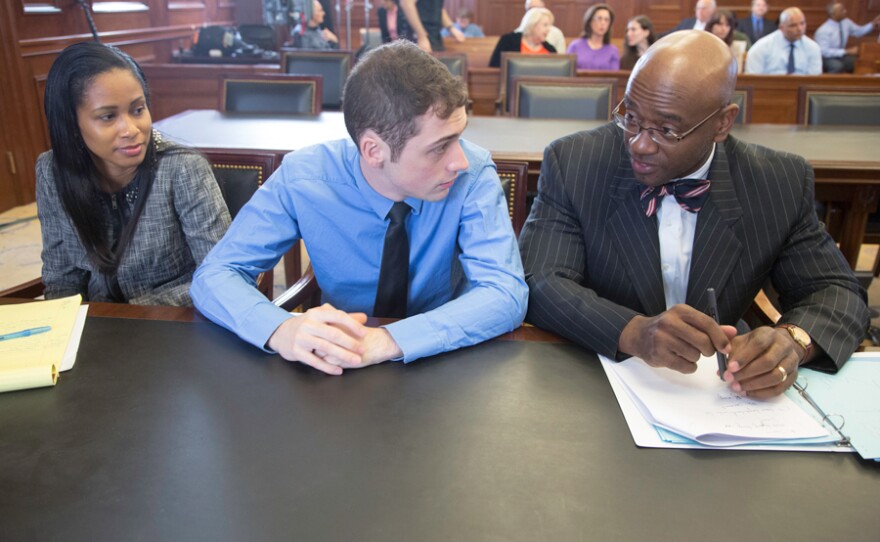

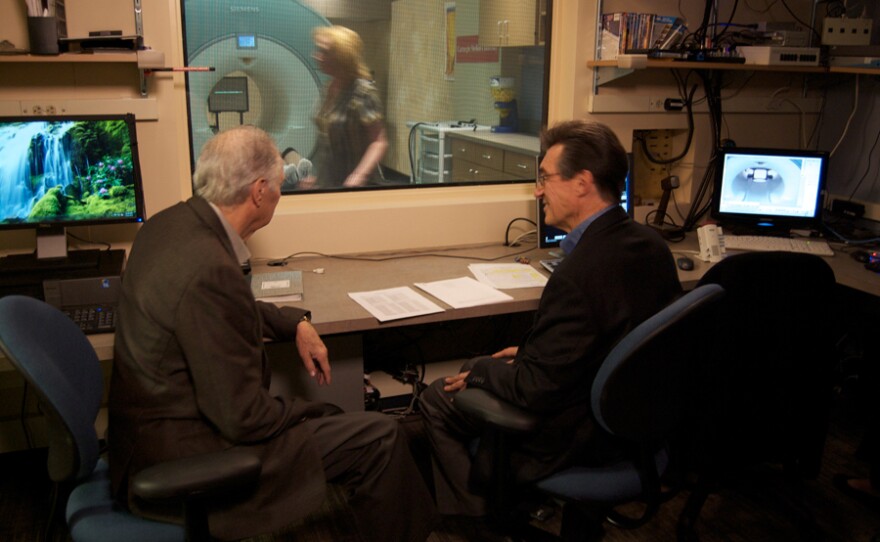
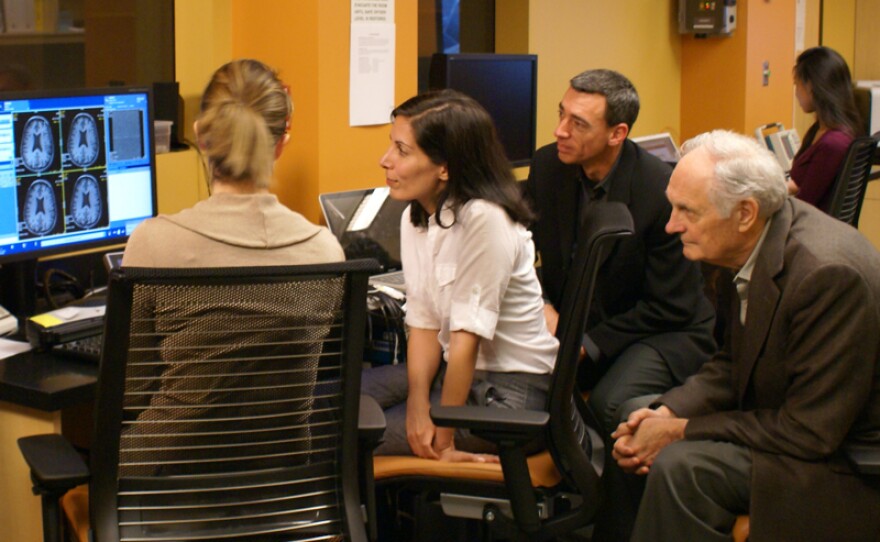
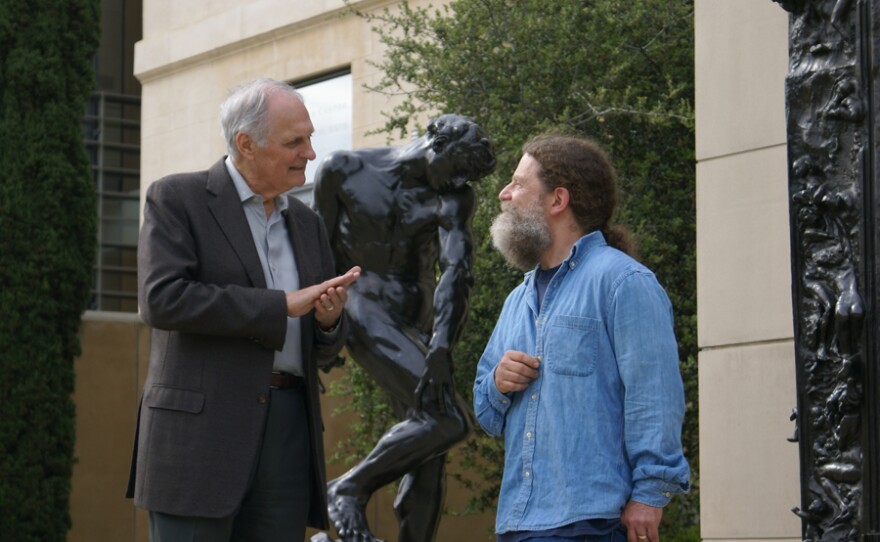
BRAINS ON TRIAL centers around the trial of a fictional crime: a robbery staged in a convenience store that has been filmed by the store’s security cameras. A teenager stands accused of the attempted murder of the store clerk’s wife who was shot during the crime. While the crime is fictional, the trial is conducted before a real federal judge and argued by real practicing attorneys.
As the trial unfolds, Alda visits with neuroscientists whose research has already influenced some Supreme Court decisions, as well as Duke University law professor Nita Farahany, a member of the Presidential Commission for the Study of Bioethical Issues.
On these visits, neuroscientists show how functional MRIs and other brain scanning techniques are exploring lie detection, facial recognition, memory decoding, racial bias, brain maturity, intention, and even emotions.
The research Alda discovers is at the center of a controversy as to how this rapidly expanding ability to peer into people’s minds and decode their thoughts and feelings could – or should – affect trials like the one presented in the program. As DNA evidence has played a major role in exonerating innocent prisoners, BRAINS ON TRIAL asks if neuroscience can make the criminal justice system more just.
Episode One: "Determining Guilt" airs Wednesday, September 11 at 10 p.m. - On trial is Jimmy Moran, who at 18 took part in a store robbery during which the store owner’s wife was shot and grievously injured. Presiding is distinguished U.S. District Judge Jed S. Rakoff, who has a longstanding interest in neuroscience and its conceivable effect on criminal law.
The trial raises common questions: Is a witness lying? How reliable is eyewitness testimony? What’s the best way to avoid a biased jury? How well can the defendant’s intentions be judged? Alan Alda explores how brain-scanning technology is providing insights into these questions and discusses the implications of neuroscience entering the courtroom.
Episode Two: "Deciding Punishment" airs Wednesday, September 18 at 10 p.m. - Jimmy Moran is found guilty of badly injuring a woman during a robbery. In the sentencing phase of the trial, Judge Rakoff hears arguments from the court-appointed psychiatrist, the attorneys, the victim’s husband and Jimmy himself.
Meanwhile, Alan Alda discovers how neuroscience is already influencing the sentencing of defendants — especially young defendants — by revealing how the immature teenage brain is vulnerable to foolish and impulsive acts.
Before Judge Rakoff pronounces Jimmy’s sentence, Alda meets a judge who has volunteered to have his own brain probed as he makes sentencing decisions.
Follow @Brainsontrial on Twitter, and explore the Science Blog at brainsontrial.com.
Preview
"Using a fictional crime — a convenience store robbery that goes horribly wrong — this two-part program builds a gripping courtroom drama. The program probes the brains of the major participants —defendant

